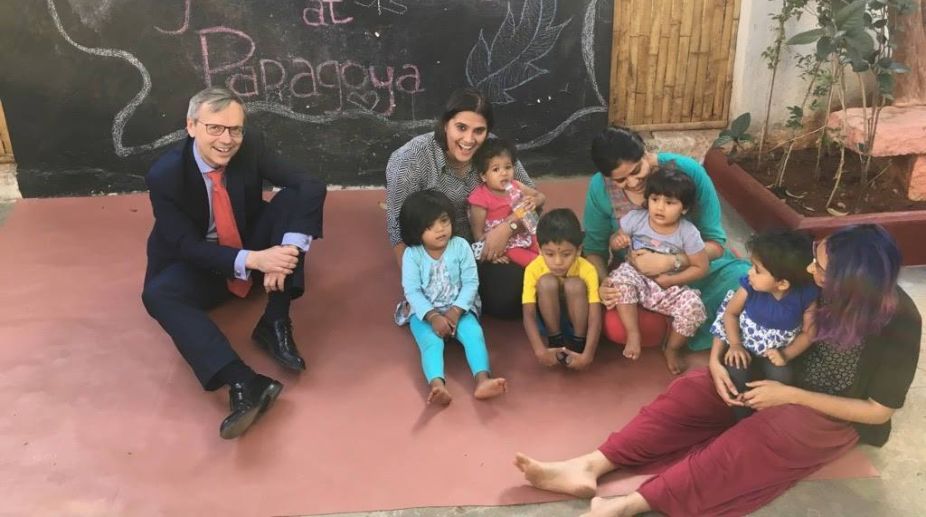‘We support India’s UN bid’
The year was 2015, when Nils Ragnar Kamsvåg took charge as the Norwegian Ambassador to India. Since then, the ambassador…

What is education? A rather challenging concept to describe, thanks to different, everchanging perceptions. “Education is not the learning of facts, but the training of the mind to think” ~ this quote by Albert Einstein is relevant in today’s scenario.
In India, generally speaking, a lot of focus is placed on education. The first 5-6 years of the child’s life, where stimuli play an important role in overall development, may tend to get missed out, with introduction to learning the basics of reading and writing being done a bit too early. This could lead to a situation where children are exposed to longer sitting and learning durations, rather than to their most basic right of playing, which is so intrinsic to their development, including their emotional and social quotients.
Advertisement
This is where Papagoya steps in: An interesting journey of two Indian women who started a Norwegian kindergarten in Bangalore. So what’s special about the Norwegian methodology? Says Helen Issar, one of the co-founders, “When we spent time in Norway, we got to see first-hand, the benefits of the Norwegian kindergarten model ~ secure, confident and gentle children.”
Advertisement
Issar has 11 years of experience in marketing and social media. Having worked and lived in Norway and Denmark, she witnessed how the Norwegian ‘Barnehage’ programme allowed women to get back to work while complete development for their children was assured, a concept she knew India could greatly benefit from. Papagoya is the ‘marriage’ of her long-term passion to work with children and her understanding of the support a woman needs to be able to don the hats of a career woman, mother and wife.
Issar adds, “The objectives of Papagoya are multi-pronged: Creation of a safe and welcoming environment for children, where they are met with the recognition and respect for who they truly are; sustaining a space where the intrinsic value of childhood can be appreciated; and supporting working parents, particularly mothers, to pursue their ambitions and passions, thereby encouraging gender equality through a more active involvement by fathers.”
Darshana Rajaram, cofounder, who spent 15 years in corporate jobs in Canada, Belgium and Singapore, recalls her most memorable and fulfilling job: teaching children to swim. Inspired by all things Scandinavian, Dash-O, as she is lovingly referred to by her little fans across the globe, says that Papagoya is her quest at creating a meaningful world for toddlers and adults alike. She elaborates on the relevance of the Norwegian pedagogy: “This model is constantly adapting itself to the environments around, making the overall approach to education very relevant as regards today’s needs and preparing children for the way the world is and will be tomorrow, both from a skills perspective and also the kind of human beings we want them to be.”
Another important element of Papagoya is the playbased outdoor approach. With adult to child ratio’s being 1:3 for the kids less than three years old and 1:5 for 3-6 age-group, it is now possible to ensure learning via play, as educators have the time and bandwidth to ensure interventions during play, and find learning opportunities therein.
Why the name Papagoya? “The name is inspired by papegøye, the Norwegian word for parrot. A parrot’s character traits are amazingly similar to those of a toddler: They come in all shapes and sizes, love to imitate, are musical and colourful, they need environmental enrichment, where play forms a large part of their learning! Much like toddlers, we thought,” elaborates Issar.
Actually, it is a win-win situation for all involved. As Nils Ragnar Kamsvag, Ambassador of Norway to India aptly explains, “It is a pleasure to know that this form of learning is gaining interest in India. The Nordic model of education aims at a holistic development of children in a setting that is comfortable and enjoyable for them. In Norway, the best interests of the children are top priority. Of course, in the long term, we are happy if such initiatives also create Norway lovers in India.”
Advertisement